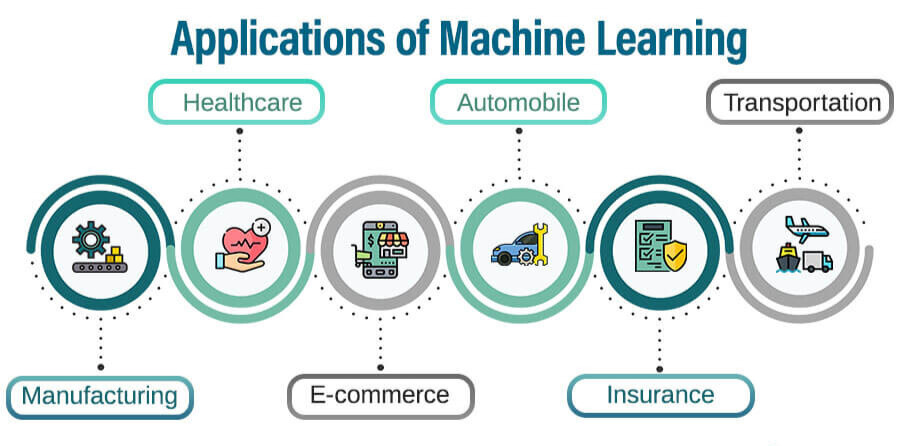What is Machine Learning?
Machine Learning (ML) is a subset of Artificial Intelligence (AI) that allows computers to learn from data and improve their performance over time without being explicitly programmed. By leveraging statistical techniques, ML algorithms enable systems to identify patterns, make decisions, and predict outcomes based on data inputs.

How Does Machine Learning Work?
The foundation of Machine Learning lies in three critical components:
- Data: The lifeblood of ML, data comes in various forms—structured (like databases) and unstructured (such as text and images). High-quality, relevant data is essential for training accurate models.
- Algorithms: These are mathematical models designed to process data, identify patterns, and generate insights. Common algorithms include regression, classification, clustering, and neural networks.
- Models: Once data is processed through algorithms, models are created. These models can make predictions, classify information, or recognize patterns in new, unseen data.
Real-World Applications of Machine Learning

Machine Learning is revolutionizing numerous industries by providing innovative solutions to complex problems:
- Business: Companies harness ML to analyze customer behavior, forecast market trends, optimize supply chains, and enhance decision-making processes.
- Healthcare: ML assists in diagnosing diseases, personalizing treatment plans, analyzing medical images, and predicting patient outcomes.
- Finance: Financial institutions use ML to detect fraudulent activities, assess credit risks, automate trading, and manage portfolios.
- Transportation: ML optimizes traffic management, improves route planning, enhances autonomous vehicle technology, and predicts maintenance needs.
- Energy: Utilities apply ML to forecast energy demand, optimize energy distribution, and improve the efficiency of renewable energy sources.
Required Configurations for Machine Learning
To effectively work with Machine Learning, robust hardware and software configurations are essential:
Hardware Requirements:
- CPU/GPU: High-performance processors are crucial. For intensive tasks, GPUs significantly speed up computations.
- Memory (RAM): Large datasets require substantial RAM. A minimum of 16GB is recommended, with 32GB or more preferred for heavy workloads.
- Storage: Fast storage solutions like SSDs are necessary to handle large volumes of data efficiently. Consider having 1TB or more.
- Networking: High-speed internet connections facilitate seamless data transfer and cloud-based operations.
Software Requirements:
- Operating System: Linux is preferred for its stability and compatibility, though Windows and macOS are also used.
- Development Environment: Tools like Jupyter Notebooks, PyCharm, or Visual Studio Code streamline coding and experimentation.
- Frameworks and Libraries: Popular ML frameworks include TensorFlow, Keras, PyTorch, and Scikit-learn. These provide pre-built models and tools to expedite development.
- Data Management Tools: Solutions like Hadoop, Apache Spark, and SQL databases manage and process large datasets effectively.
At PC Rental, we understand the demands of Machine Learning and offer tailored solutions to meet your needs. Our high-performance workstations are equipped with the latest CPUs, GPUs, ample RAM, and fast storage, ensuring you have the computational power required for ML tasks. Additionally, our flexible rental plans allow you to scale resources as your projects grow, providing cost-effective access to cutting-edge technology.




